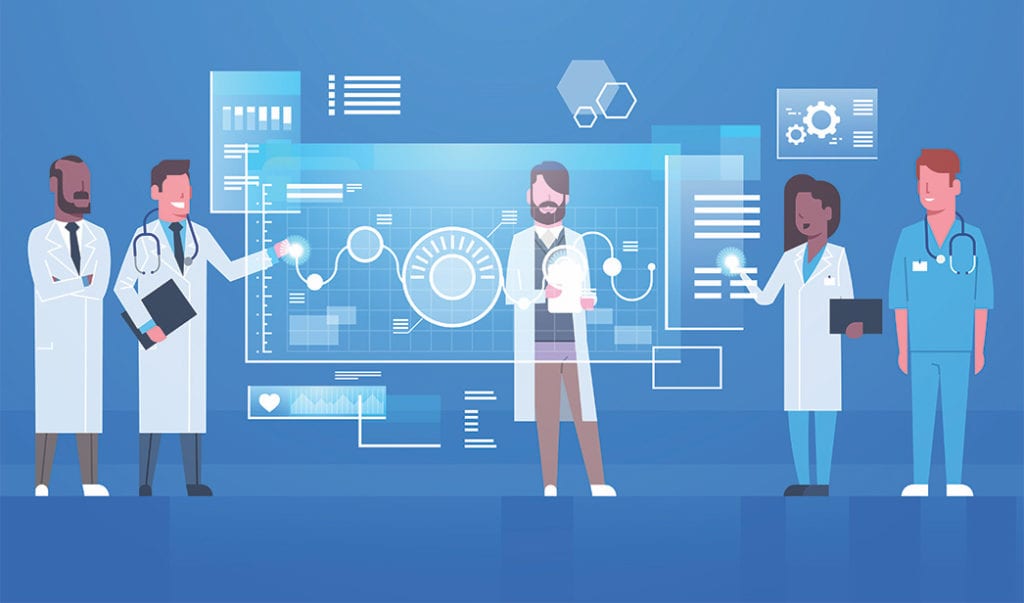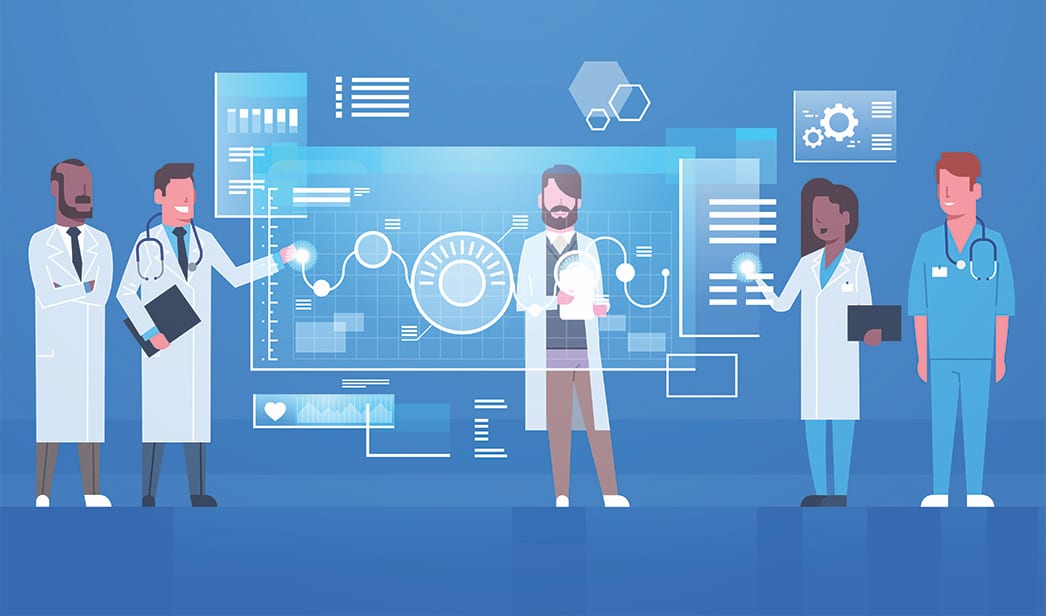
The evolution of the Internet has also changed the dynamics of the healthcare industry. In the recent past, it was a common thing for consumers to spend considerable amount of time and money to get expert medical advice from doctors. Often, it was necessary to get medical advice for even very minor symptoms and medical conditions due to the lack of access to medical information. Luckily, trends have changed as the technology, and the Internet has evolved to an extent where it is possible for consumers to get reliable information regarding their health.
Healthcare mobile applications play a critical role in disseminating useful information to consumers. Medical professionals, healthcare companies, and hospitals also benefit from the revolution. For instance, healthcare providers can easily communicate with other stakeholders by using a variety of mobile applications. Similarly, hospitals and health experts can get useful insights from consumers, which help improve their offerings based on patient psychology. It is one of the primary reasons why the healthcare market is expected to pass $200 billion by the end of 2020.
Accordingly, if you are creating a healthcare application, it is important to realize that consumers always prefer a user-friendly application that can provide them with easy-to-understand information without medical jargons. In addition, your application should help consumers save time instead of going to the doctor for minor solutions that can be addressed at home. Data security is equally important because no one likes their personal information to get in wrong hands. If you are ready to develop a great healthcare application, don’t forget to integrate the following six latest features of healthcare mobile app in your next project:
Six Features of a Successful Healthcare Application
Telemedicine
Telemedicine is widely used to provide healthcare consultations to patients from a distance. In the recent past, governments have experimented with telemedicine consultation to offer diagnostics to patients in remote rural areas. However, the availability of mobile and Internet connection have extended the role of telemedicine because doctors can easily offer consultation to their patients without the patient visiting the doctor at the hospital.
A recent survey has suggested that 75 percent of the diagnosis does not require hospital visits, which means that both patient and doctors will prefer communication that can help them resolve the problem over the phone using a video-conferencing facility. Therefore, it is imperative that your healthcare mobile app should have the ability to take appointments and enable users to use a video-calling feature.
The Internet of Medical Things
The Internet has enabled patients to keep track of their health by using wearable technologies and certain health applications on their mobile phones. These new technologies are sometimes called “the Internet of Medical Things”. Nowadays, with the help of wearable devices like fitness bracelets and smartwatches, it is getting easier to keep track of health rates, blood pressure, sugar levels, and related health patterns.
As a result, it is imperative that a healthcare application has features that will allow consumers to connect their wearable devices to the mobile app to either track their health signs or get a detailed result on the mobile. Keeping the trend in mind, a good healthcare application will facilitate consumers by providing access to information from a variety of wearable devices. In simple words, healthcare developers should carry out their own research to find popular wearable healthcare devices, and offer support for these devices.
Patient-Friendly Solution
According to prominent healthcare publications, only few healthcare mobile applications are offering some of the most important solutions to patients. For instance, many of these applications are lacking in offering access to medical records. In fact, there are also lots of apps that do not offer the ability to book, cancel, and reschedule doctor appointments. Similarly, the feature to refill prescriptions is also absent from some of the popular healthcare applications. Overall, these three features are some of the most desired aspects of using mobile healthcare applications. Therefore, developers should offer EHR access, ability to schedule an appointment, and ability to process refills.
Blockchain Technology
A large number of medical organizations are starting to use the revolutionary Blockchain technology. If you are a healthcare mobile application developer who wants your mobile application to take the top spot, then it makes sense to consider Blockchain. Basically, the technology is used to protect data from hackers.
In traditional technologies, the data is centralized in one place, which makes it easier for hackers to get access to the data file. In contrast, Blockchain does not store data in one centralized place, but it has the ability to consistently update the data. The ends result of this configuration is safe data that cannot be hacked because it is not located in one particular place. Numerous healthcare applications are already using Blockchain technology to improve their security infrastructure.
Data Security
Whereas Blockchain technology helps keep the data safe, there are various other security constraints that are addressed only using traditional technologies. Therefore, developers should always keep safety and security of data as their top priority if they want to provide complete security features to the consumer. Patient records and their communications should be kept safe, which often includes personal information, login credentials, financial data, and related documents.
As a first step to complete data security for healthcare applications, it is a good idea to get certification from reputable healthcare agencies, which provides certain benchmarks to succeed. Examples of these organizations include the Health Care Compliance Association, Food & Drug Association, and HITECH. All of these organizations offer guidance and various compliance certificates to fulfil data security requirements. Getting a certification or a seal of compliance from these and related organizations can definitely improve the reputation of your application in the eyes of a consumer. Showing a certificate of compliance on top of the application install page will surely increase application install rate.
Cloud-Based Healthcare Solutions
The development of a modern healthcare application is incomplete without an effective cloud-based management system. A cloud-based healthcare solution provides more flexibility to patients who are able to access healthcare records and data analytics on the go. App developers should understand that the main reason for creating a mobile app is to offer global access to the patient. It means that the content of the application should be accessible to the user everywhere without any restrictions. As such, developers should prefer to integrate technologies that are either cloud-based or they can provide universal access to the end consumer.
The massive growth of the healthcare industry provides healthcare app developers with an opportunity to attract a huge chunk of the market share. They must remember that healthcare applications are still in the early phase of development, which means that developers can become a solution provider enabling hospitals to take patient satisfaction to new levels. In fact, it is the right time to take healthcare application plunge.
